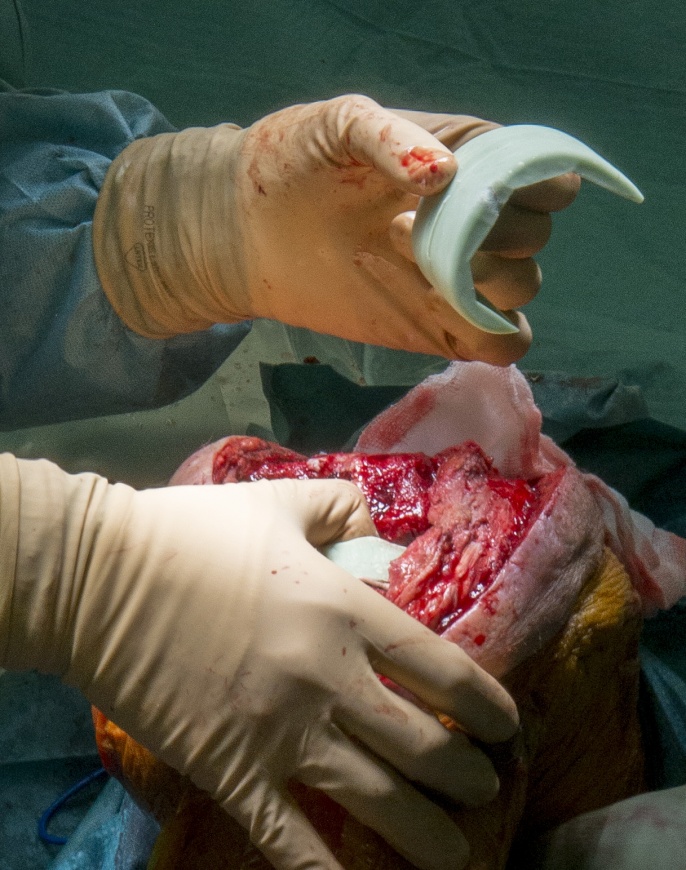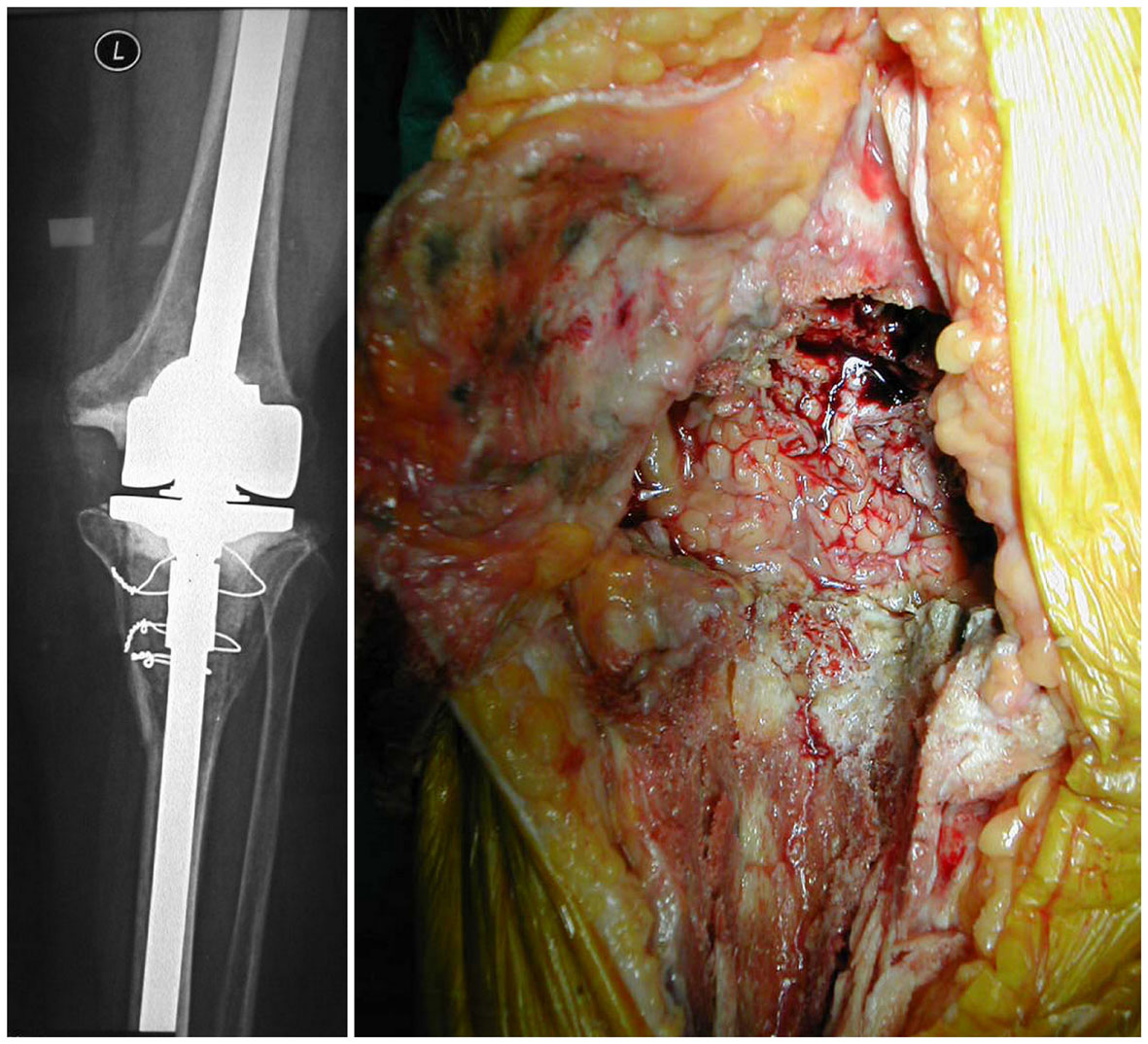
Infections can happen to the joint replacement infection even years after the surgery. After 2 years, the chance of infection goes down to about 0.5%.

Have a high bmi (+50)
Infection after knee replacement surgery. No surgical procedure is without risks, however. Knee replacement surgery mexico is conducted in an advanced hygienic operating room with sterile instruments. An infection of a knee replacement is one of the worst complications we worry about.
In the last 15 years only few cases of pasteurella multocida (p. The authors start out by classifying knee infections that occur after the primary (first) total knee replacement as one of four types: I had total knee replacement, after 8 weeks the dr.
Antibiotics are given to the patient before, during and after the operation to lower the risk for infection. Posted by titia131 @titia131, oct 27, 2018. Joint replacement infections may occur in the wound or deep around the artificial implants.
Are using treatments that suppress the immune system (including chemotherapy or corticosteroids) have frequent urinary tract infections; It may also occur around the artificial implant that is used to replace. Now after 6 weeks of home iv antibiotics, i anticipate what is next.
Infections are caused by viruses or bacteria. Total knee replacement strep infection. After 2 years, the chance of infection goes down to about 0.5%.
If the infection develops around the artificial implant that was used to replace the knee joint, it is called a deep knee infection. Everyone who has a knee replaced is at risk for a deep infection. Have poor circulation in their hands or feet;
Deep sepsis in the involved joint after hip or knee arthroplasty may be the result of hematogenous seeding from a remote infectious source. Shallow infections as a rule happen not long after your surgery. Now i’m on 875 mg of amoxicillin twice a day for 6 months.
You may build up a minor contamination in the doctor�s facility or when you go home. Infection in the surgical wound or joint itself is one of those risks. This is when 60 to 70 percent of prosthetic joint infections occur.
We report a case of p. Sometimes after surgery, knee replacement infection or joint replacement infections can occur. In the first 2 years after surgery, the chance of developing an infection is estimated at 1.5%.
Standard treatment for joint infection is to remove the joint. A knee replacement infection may develop in the wound after surgery. Infections are rare with knee replacement surgery in mexcio and rarely involve primary infection, late onset infection or even a superficial infection.
Symptoms include fevers (more than 101f), chills, excessive redness (cellulitis), opening wound edges, and others. When a knee replacement infection develops in the wound after surgery, it is considered a superficial knee infection. An infection may develop during your hospital stay or after you go home.
In less than 1 percent of joint replacement surgeries, an infection. Most infections occur in the first two years after surgery. Because doctors want to avoid infections, you’ll probably be advised to avoid dental work immediately after your tkr.
I had a second surgery to perform a washout and then had 6 weeks of ampicillin with a picc line via an infusion pump. Have a high bmi (+50) Posted by stony @stony, jul 22 6:12pm.
Infections can happen to the joint replacement infection even years after the surgery. Infection following a knee replacement is uncommon but can be a serious complication. Knee replacement surgery is a common surgery that doesn’t present complications for most people.
The drainage is often thick and sometimes chunky. Infection after knee replacement surgery is rare. Knee replacement surgery is regarded as the most effective solution that relieves pain and improves function in patients with osteoarthritis.it gives a fresh breathe of life to the people who have been suffering from the pain the knee pain.
Why consider knee joint replacement and hip joint replacement surgery. But just like all the other major surgeries, there is always this risk of infection. A small percentage of patients undergoing hip or knee replacement (roughly about 1 in 100) may develop an infection after the operation.
The number of total joint arthroplasties (tjas) performed has increased over time, and the projected growth for total knee arthroplasty (tka) and total hip arthroplasty (tha) from 2005 to 2030 is approximately 673 and 174%, respectively [].however, this growth in surgical procedures is associated with an increase in the number of surgical complications, such as. Anyone who has a knee replacement can develop an infection after surgery, but some groups are at a greater risk of infection. According to the american academy of orthopaedic surgeons, about one patient out of every 100 who undergo.
8 weeks post knee replacement i was diagnosed with a strep infection. Learn more about preventing infection after hip replacement or knee replacement. What types of infection can happen after knee replacement?
Multiple surgical procedures and long term antibiotics are needed to attempt to rid your body of an infection once your knee replacement is infected. That’s because it is very difficult to treat a knee after it is infected. Any type of infection in other areas of the body can also lead to the infection of the hip or knee replacements.
If you develop an infection in and around your knee after knee replacement, it can be one of the worst complications to occur. After knee replacement surgery, it�s conceivable to build up a disease in the entry point. Who is at risk for a deep knee infection after a knee replacement?.
Admitted the knee was infected and immediately did surgery and put in a spacer knee. Multocida) total knee arthroplasty infection have been published, mostly related to cat or dog bites or scratches. I have had home health pt, but the knee is not moving very good.